* Photograph: Nadire Mater
Click to read the article in Turkish / Kurdish
Peoples' Democratic Party (HDP) Kocaeli MP Ömer Faruk Gergerlioğlu shared the results of the "Report on Social Costs of State of Emergency in its 2nd Year", which was prepared by the Justice for Victims Community, at Taksim Hill Hotel yesterday (January 21).
Prepared by a group led by Assoc. Prof. Dr. Bayram Erzurumluoğlu, who was discharged from Adıyaman University by a Statutory Decree, the 993-page report is based on interviews with 3,589 participants from all provinces of Turkey as well as 187 participants from abroad.
The participants who were interviewed as part of the report are categorized into "direct victims", "indirect victims" and "the victims, whose lives/lifestyles have been affected by the State of Emergency," which was officially in effect from July 21, 2016 to July 17, 2018.
In the light of the results yielded by the report, Gergerlioğlu emphasized that the State of Emergency has caused three major symptoms in its victims, namely a state of shock, a distrustfulness reaching the point of insecurity/paranoia and learned helplessness.
Gergerlioğlu: Calamity of State of Emergency is threatening the generation
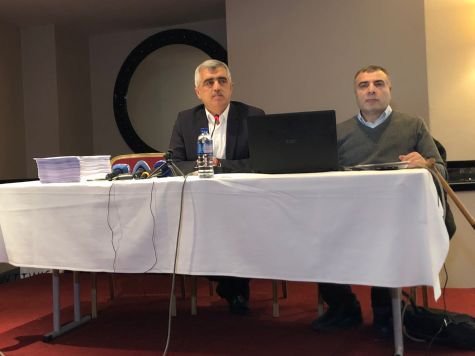
Speaking before Bayram Erzurumluoğlu, who shared the results of the report with the public, HDP MP Gergerlioğlu stated that "in case Minister of Justice reads this report, he has to resign from his office" and added,
"While the calamity of Statutory Decrees and State of Emergency have been threatening the generation and causes material and immaterial distress, its negative economic, social, political and scientific consequences have also been reflected in the society."
Here are some of the highlights from the report, whose results were announced to the public by Assoc. Prof. Dr. Bayram Erzurumluoğlu, who himself was also discharged by a Statutory Decree:
State of Emergency and presumption of innocence
* The "presumption of innocence", a principle of modern/positive law, was not put into effect for the victims of State of Emergency/ Statutory Decrees and the victims were forced to "prove their innocence by themselves."
* A majority of the ones who did not plead guilty were accused of "concealing their crimes/criminality", "denial" and "displaying organizational behavior." They were subjected to all the greater oppression and ill treatment.
State of Emergency and judicial processes
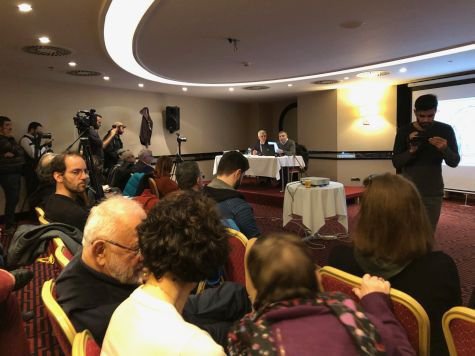
* The victims were not individually charged with or penalized for crimes that they allegedly committed but they were subjected to "mass targeting, mass accusation and mass penalization" along with their families and relatives.
* During and after the State of Emergency, the victims and their relatives were deprived of their law and job security. They are sentenced to hunger with working and international travel bans imposed on them.
* The data on "detention and/or arrest" during the State of Emergency have shown that the victims were subjected to "systematic torture" while in detention and/or in prisons. Moreover, a vast majority of them were held in prisons located far away from their places of residence.
State of Emergency and level of education
* While the rate of college and university students is 17 percent across Turkey, the same rate is 98.7 percent among the State of Emergency victims. 25 percent of them completed their MA or PhD studies. According to the report, "if these people are given the chance to go abroad", 83.9 percent of them want to leave Turkey for another country to live there.
"Not law of the supreme, but supremacy of law"
In conclusion to the report, it has been emphasized that the practices adopted during and after the State of Emergency do not have any equivalents in civil society or modern law:
"It is our wish that those days will come when not the laws of the supreme but the supremacy of the law will be valid and in effect and the right, law and justice will dominate."
State of Emergency in Turkey After the coup attempt on July 15, 2016, the State of Emergency was declared in Turkey on July 21, 2016 by the votes of 346 of 461 MPs who participated in the vote. After it was extended for the seventh and last time on April 18, 2018, it was stated that the State of Emergency would be abolished after the general elections on June 24. However, the law amendment making the State of Emergency practices permanent for at least 3 years, was published on the Official Gazette and put into effect on July 31, 2018. The 25-article legislation whose full name is "The Motion Concerning Amendments in Some Laws and Statutory Decrees" was proposed at Parliamentary Justice Commission on July 20, 2018, and it was approved at the Parliamentary General Assembly on July 25. |
(TP/SD)





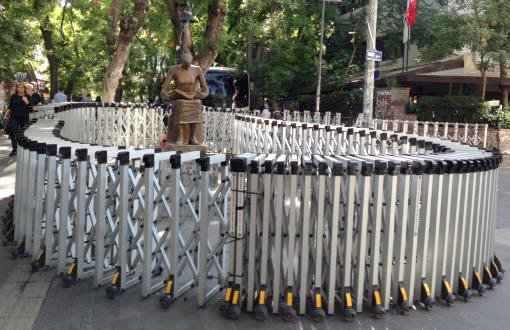
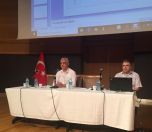


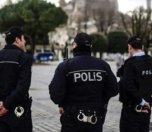
.jpg)
.jpg)


